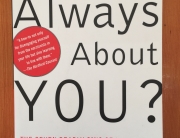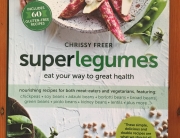 Shedding the kilos is much more complex than the old expression “calories in VS calories out”. There are many elements that influence your ability to lose weight. One is the timing of your meal around exercise, so let’s ensure you are gaining the maximum results!
Shedding the kilos is much more complex than the old expression “calories in VS calories out”. There are many elements that influence your ability to lose weight. One is the timing of your meal around exercise, so let’s ensure you are gaining the maximum results!
When your cardio session is in the morning:
For me this is my favourite time to punch out a quick 20minute high intensity cardio session, or on a weekend a brisk 60minute walk. So why is this?
When you wake from slumber your body’s number one energy store is low (glycogen). During a training session, your energy demands increase. Usually the first port of call for immediate energy is from the food you have recently consumed which is available in your stomach; second is to pull energy from your stored glycogen; and third is to pull triglycerides from your fat stores (hips, butt, thighs), convert them into free fatty acids and then back into glycogen. So as you can see, when training first thing morning, energy systems 1 and 2 aren’t an option, which means your body must turn to its FAT stores! YAY!
When your cardio is later in the day:
To maximise the benefits of cardio later in the day, plan when you will eat you pre-workout meal and be sure it is not a large meal, high in simple carbohydrates (sugars). I recommend you eat your last meal at least 2-3 hours before commencing a cardio session. Try to make this more of a snack as opposed to a full-blown meal. Choose low GI carbohydrates to minimise blood sugar spikes and to maximise your fat burn. I’d choose something like a small apple with a scraping of ABC nut spread, 2rice thins with avocado or a small amount of natural yoghurt with a couple of berries.
Ok, so when is the best time to eat post cardio workout for weight loss?
It is important to refuel your body an hour after you train. The reason why you’ll want to wait an hour to eat is to ride the fat-burning wave caused from your cardio session. Once you put food in your system, your body will switch over to burning what you have just consumed as the primary energy source. However, waiting more than an hour is typically too long, and can send your body into starvation mode. This causes your body to breakdown muscles and use amino acids for energy (this is far from ideal!).
A study held in 2009 was set up to compare the effect of low dietary carbohydrate vs. low energy intake in meals after exercise and its effect on insulin sensitivity and lipid metabolism the next day. What they concluded was, maintaining an energy deficit after exercise had the most potent effect on lipid (FAT) metabolism. Carbohydrate deficit after exercise, but not energy deficit, contributed to the insulin-sensitizing effects of acute aerobic exercise, whereas maintaining an energy deficit after exercise allowed for greater lipid breakdown.
So what should you eat?
After your workout stick to a low to medium glycemic meal, this will help keep the fat-burning hormones, like glucagon elevated and fat-promoting hormones, like insulin, in check. I would recommend eating a high quality protein and veggie based carbohydrate. Try a delicious omelette, chicken salad or a small amount of quinoa, veg and protein.
Note: The above is my opinion and is very much in hot debate in the fitness world. It is also dependent on the intensity at which you train, what your goal is and is also based on NOT including any weight training on a cardio day.
For more reading on the subject, check out these links on cardiovascular exercise, fasting workout, and Dr. Mercola’s opinion.
By Lauren Edwards
Always moving, learning & developing, Lauren Edwards has carved out a successful career in the fitness industry as a personal trainer & weight loss enthusiast. Combining a passion for travel, a ‘get up and go’ attitude with a need to find the next big challenge, has led Lauren to some far reaching destinations; most recently participating in the New York Marathon to raise money for the local children’s charity Variety Club.
Helping people reach their goals is at the heart of what Lauren strives to achieve. Currently completing her qualifications as a Health Coach (Institute of Integrative Nutrition, New York) and in her final year as a Nutritional Medicine student at Nature Care College; Lauren’s nutritional studies have proved to be both enlightening and rewarding from which she hopes to help shape the future, nutritionally educating and inspiring others.
A lover of all things ‘quirky’, Lauren is a self-confessed foodie, head chef in her own kitchen and a serial social media ‘photo poster’ of all her delicious kitchen creations. You can find Lauren and her fabulous foodie photos on Facebook.









































































































































